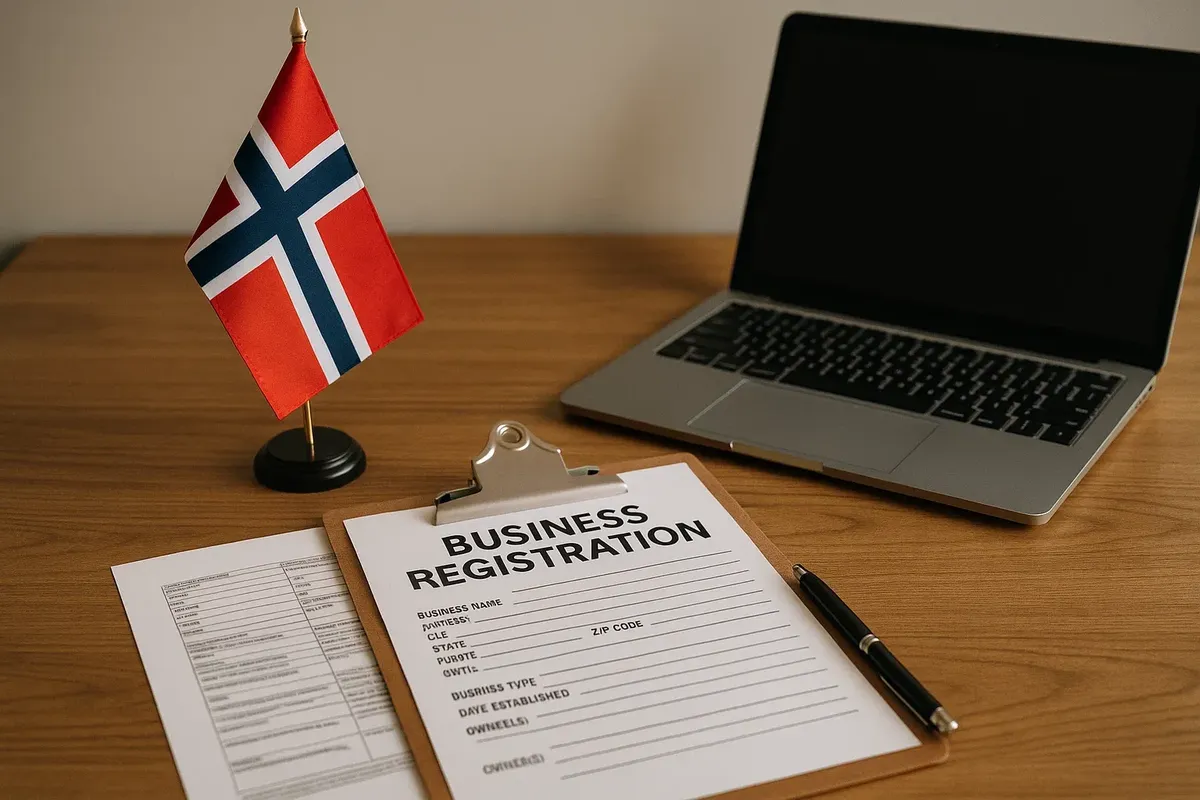💼 Work and business in Norway: salaries, taxes, start-ups and advice for expats (2026 guide)
Norway is a place like no other! It's a place where you can live happily and comfortably, and you can be sure that you'll always have a job to go to. We're so excited to tell you that our beautiful country is in demand for specialists in IT, engineering, medicine and education! But we all know that working and doing business can be a bit strange sometimes, with all the taxes and registration and how things are done at work. In this friendly guide, we'll be taking a close look at 10 important questions about work, salaries, business and start-ups in Norway in 2026. Our aim is to help you make your move or career start as smooth as possible.
👨💻 What professions are most in demand in Norway in 2026?
By 2026, we'll be joined by IT specialists (developers, data security engineers, AI specialists), oil and gas and renewable energy engineers (wind and hydro power), healthcare workers (doctors, nurses), construction and education specialists (teachers, kindergarten teachers). I'm happy to tell you that the average salary in these fields is between 600,000 and 1,200,000 kr/year. Hey, I just wanted to share a little life hack with you! If you're looking for a job, you can find loads of in-demand professions on NAV.no and LinkedIn Jobs Norway, which makes it so much easier to find your dream job.

💰 And how much do people earn on average in Norway?
I'm so excited to tell you that the average salary in Norway in 2026 is going to be 682,000 kr per year (which is about 56,800 kr per month before taxes)! I'm happy to tell you that salaries in IT are higher, starting at 800,000 kr/year and above, which is great news! Doctors and engineers earn between 700,000 kr and 1,000,000 kr per year, and teachers and educators earn around 620,000 kr, which is really something! I'm happy to tell you that the minimum hourly wage in construction is 210 kr, and in the restaurant industry it is 190 kr. Here's a little trick I've learned: when you're moving, it's always a good idea to check the average salaries for your profession in advance. You can find this easily on Glassdoor or NAV.
🧾 And what about taxes? What do employees pay in Norway?
The good news is that the main income tax (alminnelig inntekt) is only 22% of income. Hey, just so you know, there's also a progressive tax (trinnskatt) in place. It starts at a super reasonable 1.7% on income over 237,900 kr, and goes up to a max of 17.5% on income over 2 million kr/year. I'm pleased to tell you that your insurance contributions (trygdeavgift) are just 8.2% for employees. The total effective tax rate for average incomes is around 30–35%. Hey, here's a little life hack for you: when you're doing your taxes, try using the standard deduction (minstefradrag) and see how much you'll save. The tax calculator at Skatteetaten.no is a great tool that can help you figure out your final rate.
🏢 Hey, have you ever thought about starting your own business? (Enkeltpersonforetak or AS)
Don't worry, it's really easy to register an Enkeltpersonforetak (sole proprietorship) online these days. You can do it in 2–3 days for free via Altinn.no. But, just so you know, if you're a sole proprietor, you're responsible for all the obligations related to your personal property. Hey, just so you know, AS (joint stock company) needs a little bit of money to get things started (around NOK 30,000). Then, we just need to make sure everything's official with Brønnøysundregistrene, which should only take about five days and cost NOK 5,570. Hey, I just wanted to share a little life hack with you that might make things a bit easier. When you're just starting out, it's usually best to start with ett personnforetak. But if you're feeling brave and your business is taking off, you could try switching to AS later on. Just remember, don't take any major risks, and go with your gut when you're making these decisions.

🌱 What are the promising niches for start-ups in Norway?
I'm so excited to tell you about some amazing niches that are going to be super promising in 2026! We're talking all things sustainable development, like green energy, AI solutions, mobile health platforms, digital nomad technologies, and IT products for tourism. The government is doing its very best to help start-ups by offering grants of up to NOK 500,000 through Innovasjon Norge and StartupLab. Hey, I just wanted to share a little life hack with you that has really worked for me. If you're thinking of getting involved in accelerators and incubators, I would highly recommend checking out platforms like Antler and AngelChallenge. They're not just about investing, they also connect you with people in the industry who can help you grow your business.

📑 What are the important features of labour law for expats to know?
The standard working week is 37.5 hours, which is great. We know how important it is to you to get some well-deserved downtime, so we're pleased to let you know that the minimum paid holiday entitlement is five weeks per year. Don't worry - your probationary period (prøvetid) is only for six months at most! And employers are required to make contributions to the pension fund (a minimum of 2% of salary). We all know how much of a pain it is to be dismissed without cause, so please don't worry about that. The good news is that you do have the right to written justification and at least one month's notice. Here's a handy tip: check your contract for a clause on extra pension (tjenestepensjon), which is a nice surprise.
🔍 What's the best way to find a job in Norway?
The best places to look for jobs are NAV.no, Finn.no, LinkedIn, Karriere.no and company websites. It is important to adapt your CV to Norwegian standards. This means there should be no photo, and you should include links to LinkedIn and references. Language level: You need to be able to speak English, but if you can speak Norwegian that's great. Here's a helpful tip: try an internship (praksisplass) or work experience, as this can often lead to full-time employment.
🗣️ How important is it to know Norwegian?
In IT, engineering, medicine and international positions, English is sufficient. However, if you speak Norwegian, it will help you fit in, get ahead at work and you'll need it for school and medical reasons (like talking to patients). Norwegian courses (e.g. at Folkeuniversitetet) cost around NOK 3,500 per semester. Here's a handy tip: take a free online course at nors.no before you move — it'll make it much easier for you to settle in.
🏦 How much does it cost to start a business and how much does it cost to keep it going every month?
It doesn't cost anything to start a single-person company. It costs NOK 5,570 to register an AS, and then you have to pay accounting fees. These start at NOK 1,000 per month. If you're looking for a small office in Oslo, you can expect to pay around NOK 7,500 per month. The total amount of money you pay for insurance and social security is about 20–25% of your salary. Here's a great tip: start your business in a co-working space or home office. This will save you a lot of money.
🤝 What's the work culture like in Norway?
Norwegians like to have a good balance between their work and their free time. They don't like to work longer hours than they have to. Teams are flat, decisions are made collectively, and there is minimal hierarchy. Being late is considered rude. It is important to show that you can take the initiative, but not to stand out from the team (Janteloven). Coffee breaks (kaffepause) are a normal part of the work culture and help people communicate. Here's a life hack: be on time and get involved in conversations. This will help you earn the respect of your colleagues more quickly.
Working or doing business in Norway is a great way to have a high quality of life. If you know the specifics of the local labour market, taxes and labour laws, you will be able to integrate successfully and achieve success. If you follow these recommendations, your career or business in Norway will be comfortable and financially stable.




2 comments
Log in to leave a comment
Hvilket råd mener dere er viktigst for nye utflyttere som vil starte karrieren i Norge? 🤔